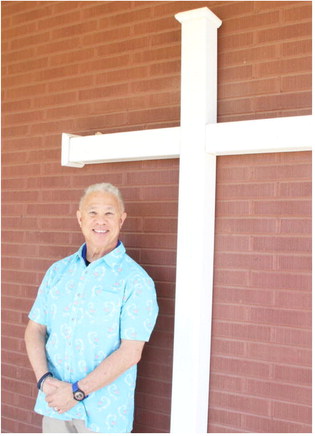One Trans Youth Bill Falls
One bill that would limit the rights of transgender youth is dead in the Montana Legislature and another is headed to Gov. Greg Gianforte’s desk amid growing warnings from health care providers, Democrats and athletic organizations of the economic and legal consequences of passing “discriminatory” bills.
House Bill 112 and House Bill 427 are similar to a dozens of bills in states across the nation seeking restrictions on transgender youth rights. With one measure amended to prevent losing federal funding for perceived “discrimination” and the other killed by a bipartisan vote in the Senate, the bills’ path through the Legislature has been fraught with concern Montana could lose federal education dollars or National Collegiate Athletic Association- sanctioned events should the bills become law.
Rep. John Fuller, R-Whitefish, is sponsoring both bills. HB 112 would restrict transgender women and girls from participating in womens’ sports from elementary school through college, while HB 427 would have restricted doctors from performing gender-affirming surgery on transgender youth — though the practice already does not happen in the state, doctors have said. HB 427 was a redo of a bill Fuller sponsored earlier in the session; that one died in a similar bipartisan fashion in the House.
HB 112 cleared the House of Representatives on a 61-38 vote in January, but stalled in the Senate for two months as lawmakers debated how to proceed with the bill after President Joe Biden issued an executive order prohibiting discrimination based on gender at the start of his term. Under the executive order, if HB 112 becomes law in Montana and the federal government determines it to be discriminatory, the state’s universities could stand to lose millions in federal education funding. The National Collegiate Athletic Association also released a statement on April 12 backing transgender athletes. The organization said it would not host championship events in states that do not provide “an environment that is safe, healthy and free of discrimination.” If HB 112 becomes law, any future Montana State University Bobcat or University of Montana Grizzly football playoff games could not be held in-state under the college athletic group’s policy.
Fuller and the bill’s supporters have frequently said the bill is not discriminatory, as athletes would still be allowed to participate in sports under their sex assigned at birth, but the Senate amended the bill nonetheless with a clause to void the measure if the federal government deems it discriminatory. However, the House voted to reject those amendments, leading to a conference committee comprised of members of both chambers that briefly debated the bill Tuesday, April 20.
There, Fuller and Republicans voted to amend the bill to allow for an appeal process if the Biden administration pulls education funding as a result of the bill’s passage, only rendering the bill void if that appeal fails. The committee voted to advance the bill down party lines for a final vote in the House and Senate, with Republicans voting in favor and Democrats against.
During the hearing, Democrats on the committee said the amendment wouldn’t prevent the state from being sued over the bill, racking up “thousands or millions of dollars” in legal fees, according to Sen. Bryce Bennett, D-Missoula. Bennett also slammed the bill as “awful,” and said it would result in harm to transgender people across the state.
“This is, on its face, a discriminatory and unnecessary bill, and I think we all know there are a lot of things we needed to tackle this session, but the fact that we are spending a single moment on deciding who’s allowed to play sports as a kid is shocking to me,” Bennett said. “This Legislature has a heck of a lot better things to do than to bring awful bills like this forward.”
But Fuller objected to Bennett’s comments, saying the bill would not cost the state financially, nor result in the invasion of children’s privacy.
“You have a human right not to be discriminated against, but you do not have a sports right. We have all kinds of classifications regarding sports,” Fuller said.“We have height, weight, age, size and sex, and all this bill does is reinforce that and protect Title IX, which has been in effect for 49 years.”
The House and Senate both approved HB 112, mostly along party lines, and the bill is now awaiting action by the governor.
HB 427- the bill restricting gender-affirming surgery for minors — was set for debate in the Senate on Tuesday, April 20, but at the start of the floor session, leadership opted to delay the discussion. However, as the body could still take action on the bill, Sen. Bennett rose at the end of the meeting and moved to “indefinitely postpone” it — a motion that, if successful, would effectively kill the measure. HB 427 then went down in a 27-22 vote, with eight Republicans joining all Democrats to postpone the bill.
After the vote, Bennett celebrated on Twitter, writing, “Discrimination isn’t a Montana value. Period. We came together today to protect trans kids and make sure their parents control their healthcare, not the government.”
At the end of the meeting, Sen. Brad Molnar, R-Laurel, who voted against postponing HB 427, praised Bennett for what he called “the smoothest parliamentary move I’ve seen all day.” Molnar previously attempted to stick an amendment on the state budget to eliminate Medicaid expansion, but did not succeed.

